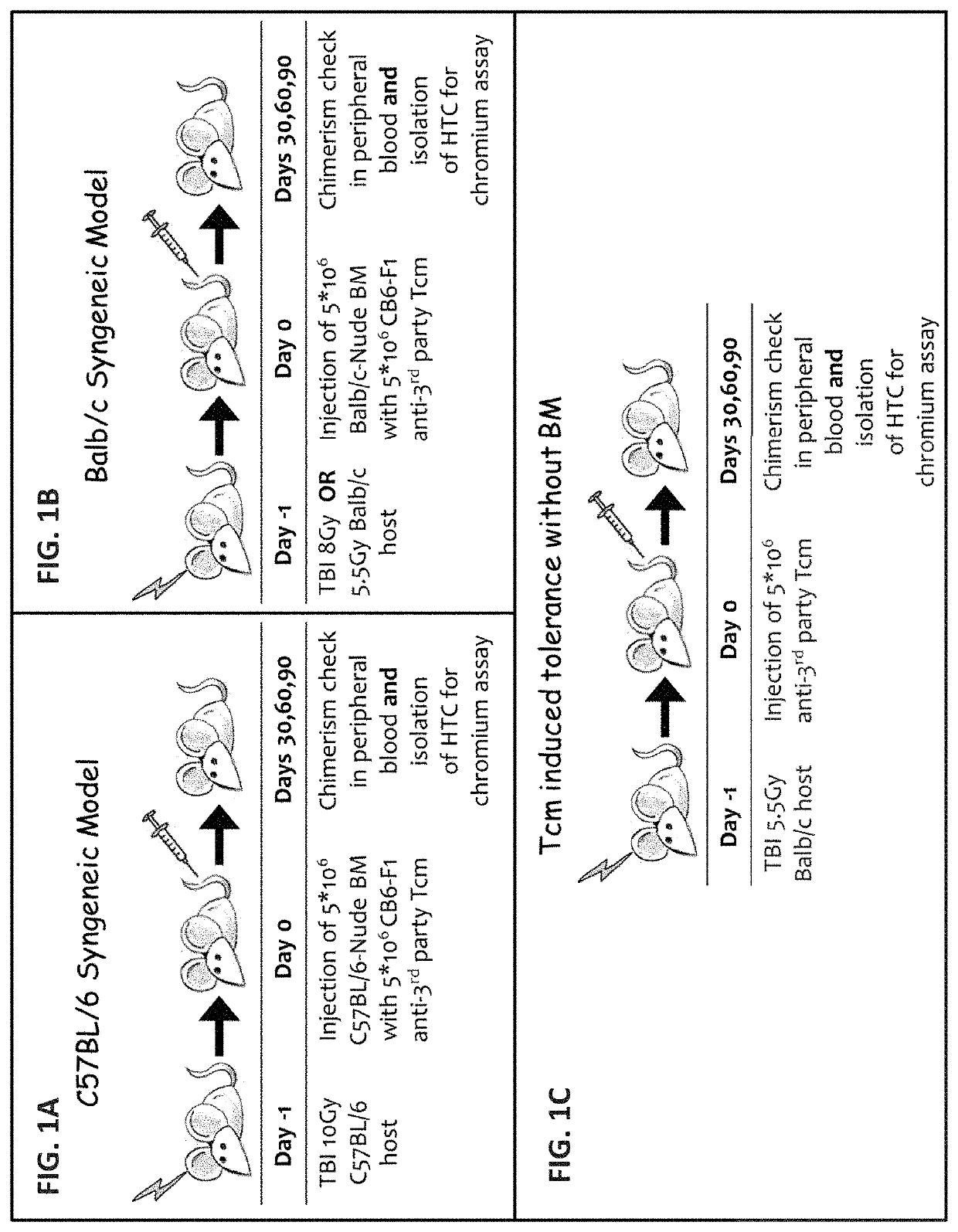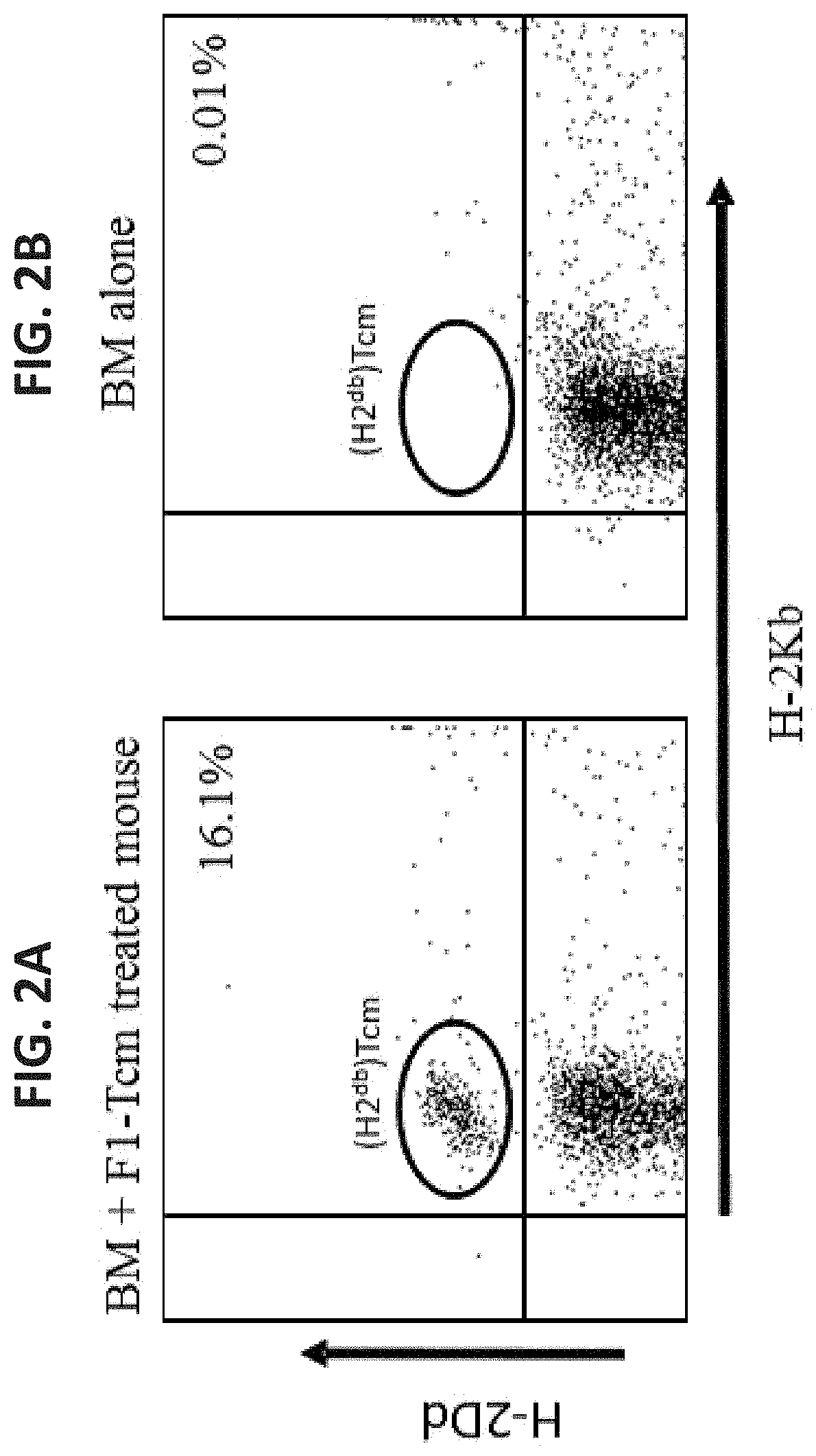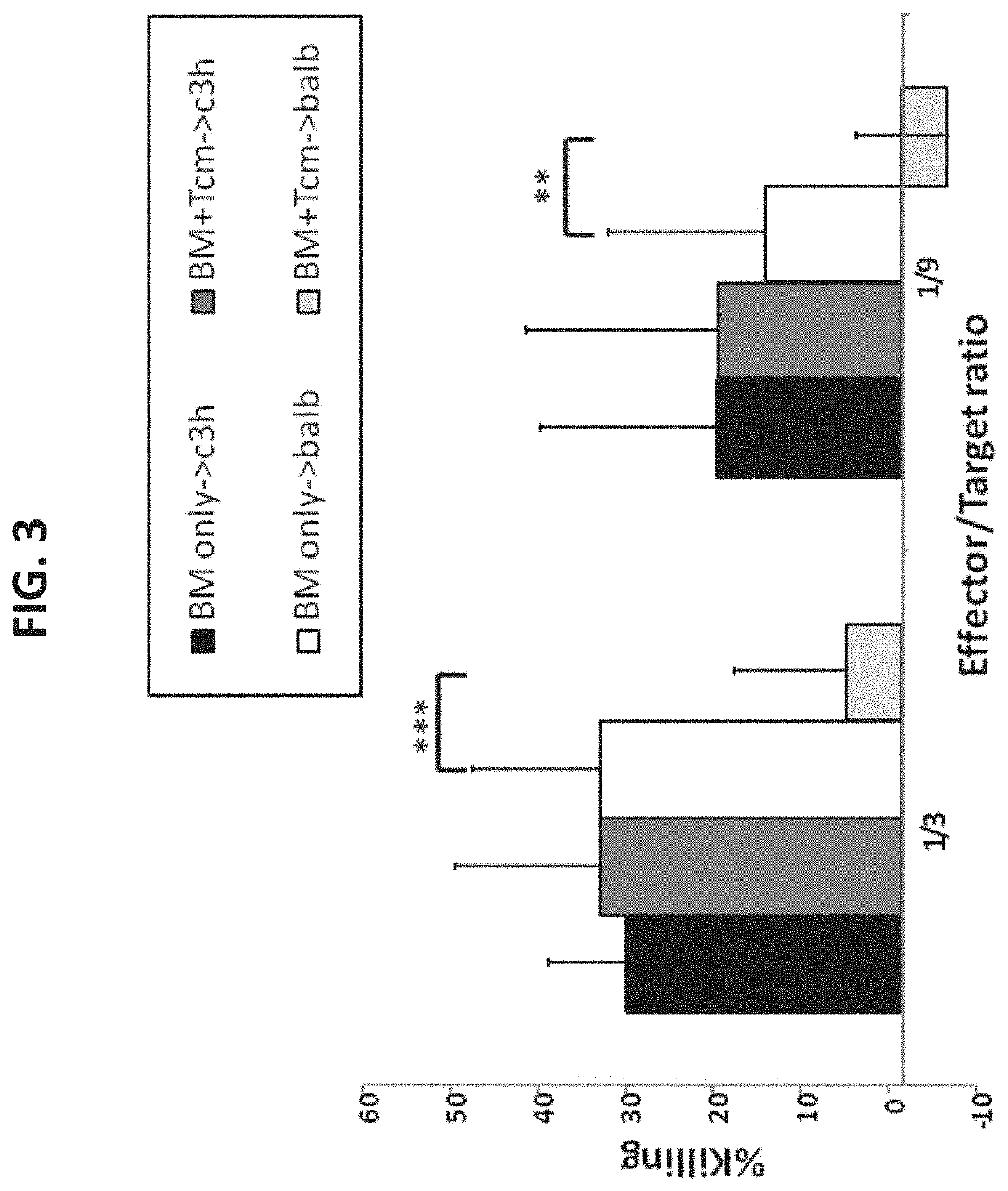Methods of transplantation and disease treatment
a transplantation and disease technology, applied in the field of transplantation and disease treatment, can solve the problems of insufficient amount of cd34sup>+/sup> cells that can be harvested in humans, time and labor-intensive preparation of til for therapy, and inability to achieve tolerance under reduced intensity conditioning protocols
- Summary
- Abstract
- Description
- Claims
- Application Information
AI Technical Summary
Benefits of technology
Problems solved by technology
Method used
Image
Examples
example 1
MHC Mismatched Tcm Survive in Host Mice Under Syngeneic Bone Marrow Settings and Exert Specific Veto Activity
[0430]Considering that syngeneic bone marrow transplant (BMT), even when administered in the context of lethal total body irradiation (TBI) is by far safer in humans compared to allogeneic BMT, the present inventors first sought out to determine whether adoptively transferred F1-Tcm cells survive the attack of host anti-donor HTC when infused in conjunction with syngeneic TDBMT (FIGS. 1A-B). As can be seen in FIGS. 2A-B, F1-Tcm persisted in the peripheral blood at day 60 post-transplantation. Tcm cells comprised some 13%±10 of the total CD8+ compartment (data not shown). Next, to evaluate the ability of Tcm to induce deletion of antigen-specific clones within the wild type polyclonal HTC population and to verify that remaining HTCs retain their functionality, a chromium release killing assay was employed. Results show that H2bCD8+HTC from Tcm treated mice displayed significan...
example 2
MHC Mismatched Tcm Survive in Host Mice in the Absence of a Bone Marrow Transplant
[0431]In light of the above data, the ability of the Tcm cells alone to induce tolerance in the absence of BM was assessed. The outreach of such a protocol would be far greater. Specifically, induction of immune tolerance through administration of anti-3rd-party Tcm cells alone, under safe conditioning, would be an asset not only for immune compromised individuals, but could possibly allow for the treatment of non-malignant hematological diseases (e.g. anemia & thalassemia), autoimmune diseases and could provide a platform for cell therapy administration. Initially the present inventors attempted to define the minimal irradiation dose under which Tcm cells of F1 origin engraft, in order to set up the model in which tolerance induction in hosts can be tested. To this end, Balb / c mice were exposed to a range of sublethal conditioning doses with and without adoptive transfer of CB6 F1-Tcm cells. Analysis ...
example 3
MHC Mismatched Tcm Support Adoptive Transfer of Cells from the Same Donor
[0433]To test the hypothesis that Tcm cells can be used for adoptive cell therapy, the present inventors utilized a transgenic OT1 mice that carries a TCR against the ovalbumin peptide. The motivation to use OT1 transgenic cells in this context stemmed from the idea that these cells can be used as a model for cell-therapies known as donor lymphocyte infusion (DLI) with the whole population of donor T cells or with antigen specific T cells directed against viral or tumor antigens.
[0434]Initially, naïve CD8+OT1+CD45.1+ T cells were infused into the Tcm chimeric mice, 90 days post initial adoptive transfer of the Tcm. The main goal was to define whether the surviving Tcm population can facilitate engraftment of newly infused allogeneic cells. Prior to injection of naïve Tg cells the Tcm population in chimeric mice were analyzed by FACS. Thus, 2 / 5 and 9 / 11 mice that had received C57BL / 6 Tcm or CB6-Tcm, respectively...
PUM
| Property | Measurement | Unit |
|---|---|---|
| concentrations | aaaaa | aaaaa |
| Tem | aaaaa | aaaaa |
| reactivity | aaaaa | aaaaa |
Abstract
Description
Claims
Application Information
 Login to View More
Login to View More - R&D
- Intellectual Property
- Life Sciences
- Materials
- Tech Scout
- Unparalleled Data Quality
- Higher Quality Content
- 60% Fewer Hallucinations
Browse by: Latest US Patents, China's latest patents, Technical Efficacy Thesaurus, Application Domain, Technology Topic, Popular Technical Reports.
© 2025 PatSnap. All rights reserved.Legal|Privacy policy|Modern Slavery Act Transparency Statement|Sitemap|About US| Contact US: help@patsnap.com



